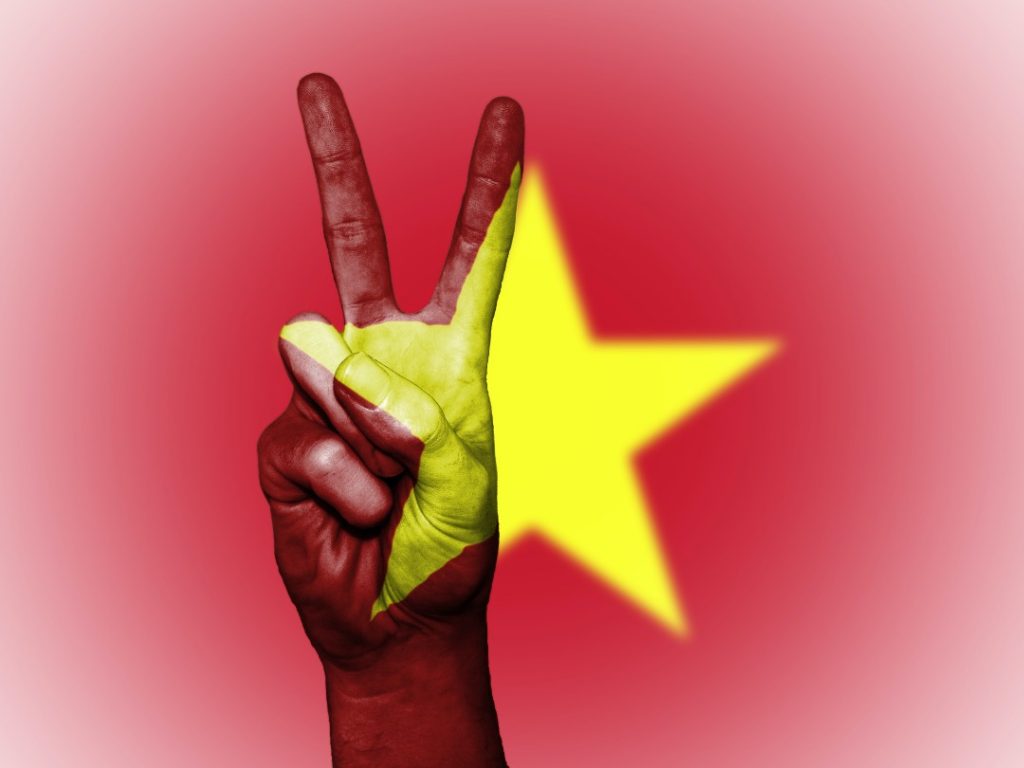On October 1, 2019, Vietnam filed an instrument of accession to join the Hague Agreement Concerning the International Registration of Industrial Designs (Geneva Act of July 2, 1999). The Hague Agreement has officially taken effect in Vietnam as of January 1, 2020, three months after the filing date of the instrument.
Certain provisions of Vietnam’s Law on Intellectual Property (IP Law) and its guiding legislation will need to be amended or updated to be compatible with the Hague Agreement, as well as other recently joined or signed treaties like the EU-Vietnam Free Trade Agreement (EVFTA). While waiting for these amendments, Vietnam has announced that the provisions of the Hague Agreement will be directly applied for both international design applications designating Vietnam and international design applications originating from Vietnam.
In mid-September 2019, the Ministry of Science and Technology (MOST) also posted for public comments a draft proposal for amendment and supplementation of the IP Law, including some provisions that will facilitate applicants of international applications under the Hague Agreement. It is expected that the draft amended IP Law will be finalized and submitted to the National Assembly for approval in 2021.
Fast forward to January 12, 2021, a workshop on consultation of the draft amendment to the Vietnam IP Law (“Draft Law”) was co-hosted by the Ministry of Culture, Sport and Tourism; the Ministry of Science and Technology; and the Ministry of Agriculture and Rural Development. The workshop attracted around 150 attendees from relevant authorities, corporations, law firms, associations and organization in various sectors. Given the in-depth coverage and comprehensive amendment provided by the Draft Law, most comments have been submitted to the drafting committee via position letters.

NOTABLE ISSUES OF THE DRAFT LAW

1. Estimated timelines of the Draft Law project
The drafting committee has announced the estimated timelines of the Draft Law project, which are as follows:
November 2020 : Draft Law released for public consultation
June 2021 : Finalization of the Draft Law following public consultation
October 2021 : Submission of the finalized Draft Law to the National Assembly for review and debate
June 2022 : Passing/enactment of the Draft Law
2. Aim of the Draft Law
The Draft Law proposes changes to the current IP Law in order for it to comply with the duties and requirements under signed big trade pacts mentioned above such as the European-Vietnam Free Trade Agreement (EVFTA), the Comprehensive and Progressive Agreement for Trans-Pacific Partnership (CPTPP), most recently the Regional Comprehensive Economic Partnership (RCEP), and the UK-Vietnam Free Trade Agreement (UKVFTA). The Draft Law is also expected to prepare Vietnam for its accession to other international IP treaties, such as the Marrakesh Treaty.
3. Scope of amendment
The Draft Law proposes comprehensive revisions and/or supplement of 80 articles (including 13 new articles added to the current IP Law), covering the following:
- General regulations
- Copyright and related rights
- Industrial property (patent, design, trademark, geographical indication)
- Plant variety
- Enforcement of IP rights
4. Notable proposed changes under the Draft Law

版权
The Draft Law introduces a new mechanism called “Price negotiation” to deal with outstanding issues in practice, such as where exploiting companies and collective management organization of copyrights (CMO) cannot reach an agreement on royalty fees. The initiative was based on Article 11bis of the Berne Convention, with the “price negotiation” legal term coming from the Law on Prices 2012. While the Draft Law does not provide “price negotiation” details in connection with royalty fee, a guiding decree is likely to follow once the Draft Law has been passed, in order to provide further details and application of this mechanism.
Besides that, the Draft Law recognizes exhaustion of distribution and import rights, as explained by the drafting committee, to allow parallel imports. In particular, a limitation on distribution and import rights have been introduced to exclude such rights from being exercised for the next distribution of works that have been duly distributed for the first time in the market. However, the relevant associations from different sectors also raised their concerns and demands for a thorough review on the balance of public interest and exclusive rights of authors and owners in the current IP Law and the Draft Law during the workshop, as well as a possibility for a separate copyright law.

商标
The Draft Law includes “sound” as an eligible sign for trademark protection. However, the Draft Law requires that the sound sign must be presented in the form of graphics, which may be ambiguous and complicated to implement. However, a more assertive form of representation would be “sound sign presented in form of musical notes or audio wave” for more feasible implementation.
Currently, an expired trademark will still become a citation within five years from its expiry date. The Draft Law proposes to reduce this period to three years.
In practice, it is common for applicants to request the Trademark Office to suspend examination while they proceed with non-use cancellation against cited trademarks. This practice has now been recognized in the Draft Law.
The Draft Law introduces a new ground for refusal of a trademark based on a plant variety name.
Lastly, concerns have been raised that there is still no definition of “bad faith”, and that it is still not a ground for trademark refusal in the Draft Law. Further, concerns have also been raised that copyright has not yet been recognized as a refusal ground for trademark in the law. The inclusion of copyright as a refusal ground is very important in order to deal with the overlap between copyright (such as applied art work) and trademark, and especially the overlap of musical works and sound marks.

专利
Part of the Draft Law is a new article regarding security control of inventions before filings for grant of patents in foreign countries on the grounds of security and national defense. The scope of this article covers any inventions of Vietnamese individuals and entities incorporated under Vietnamese laws.
Given the broad scope and vague definition of security and national defense, both local corporations and foreign firms having R&D centers in Vietnam raised concerns over this proposed regulation. Local experts have warned that this regulation, if enacted, will be an obstacle for Vietnam in attracting foreign R&D investment into the country, in addition to the risk of losing such investment to neighboring countries.
Besides that, the Draft Law, in compliance with the EVFTA, proposes either of the two plans on compensation for patent holders due to the delay in granting approval for the circulation of drugs; one being waiving of annuity fees, and the other being allowing patent owners to collect licensing fees even after the patent has expired.
The proposed amendments have faced concerns raised by other stakeholders because they may not comply with the EVFTA, which, in short, requires an extension of patent validity in case of such delay.
工业设计
Notable proposed amendments to the relevant industrial design regulations include simplifying requirements for applications for industrial design protection, allowing protection for partial design (i.e., a part of a complete product), and allowing delay in publication of design applications (maximum seven months).
Plant Variety
Current IP Law provides that subject matters of rights to plant varieties include reproductive and harvested materials. The Draft Law proposes to extend this scope to cover “products as processed from harvested materials of plant varieties.”

Enforcement of IP Rights
The Draft Law proposes to remove administrative action as an available option for rights holders in tackling IP infringement. On another plan, the Draft Law proposes to limit the administrative action to be available for infringement of copyright and related rights, trademark, geographical indication, and plant variety. Of note, administrative action is one of the most popular actions that rights holders have been using in tackling IP infringement due to its time and cost-effectiveness.
POSSIBLE ADDITIONAL AMENDMENTS
As a member of the WTO, Vietnam provides patent protection for pharmaceutical inventions. However, useful inventions, such as medical use inventions, are controversially not protected. The Ministry of Science and Technology admits that the protection of used inventions needs to be considered; however, no proposal to amend the law has yet been raised. If use inventions are not protected, this could check the development of the pharmaceutical sector in Vietnam, especially for Vietnamese companies.

CONCLUSION
The Draft Law is currently open for public consultation so that it could be finalized in June 2021. It is hoped that, following the public comments, additional provisions addressing these issues and others will be included in the official proposal submitted to the government.
Any individual and/or corporation looking to register their intellectual property in Vietnam or another ASEAN country to protect their Vietnamese patent, Malaysia patent, Brunei patent, Singapore patent, etc. should look no further. We, Pintas Group, are your optimum selection to go for any intellectual property registration (including but not limited to trademark registration, patent registration, etc.) or any IP services in any ASEAN country.
Please visit our website or contact us at +6012-797 5077.
Sources:
Vietnam Joins the Hague Agreement and Prepares to Amend Its IP Law – Tilleke & Gibbins
Vietnam: Workshop on consultation of draft amendment of IP Law – Baker McKenzie InsightPlus

